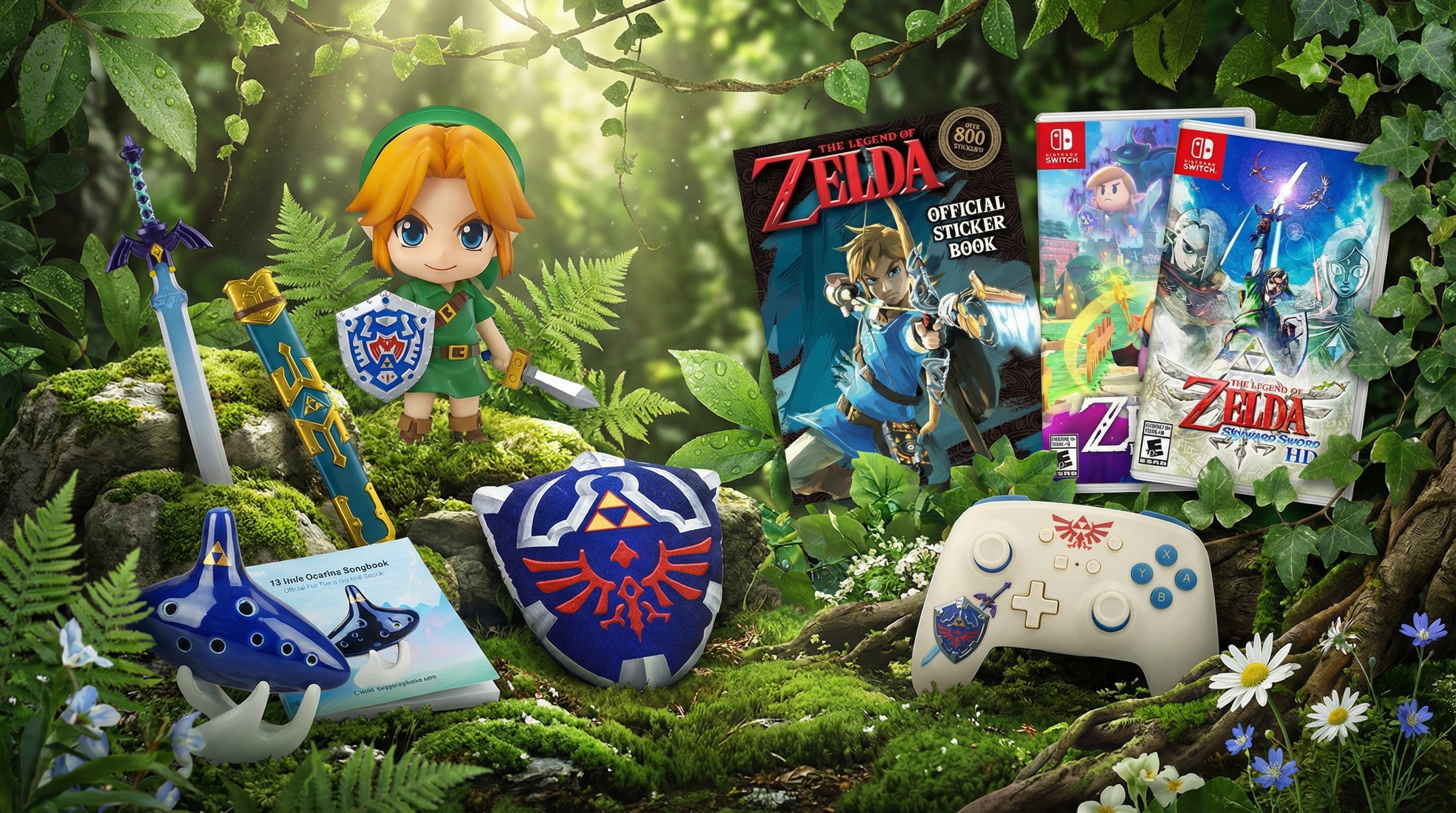Please, Watch The Artwork transforms the paintings of Edward Hopper into a casual psychological horror
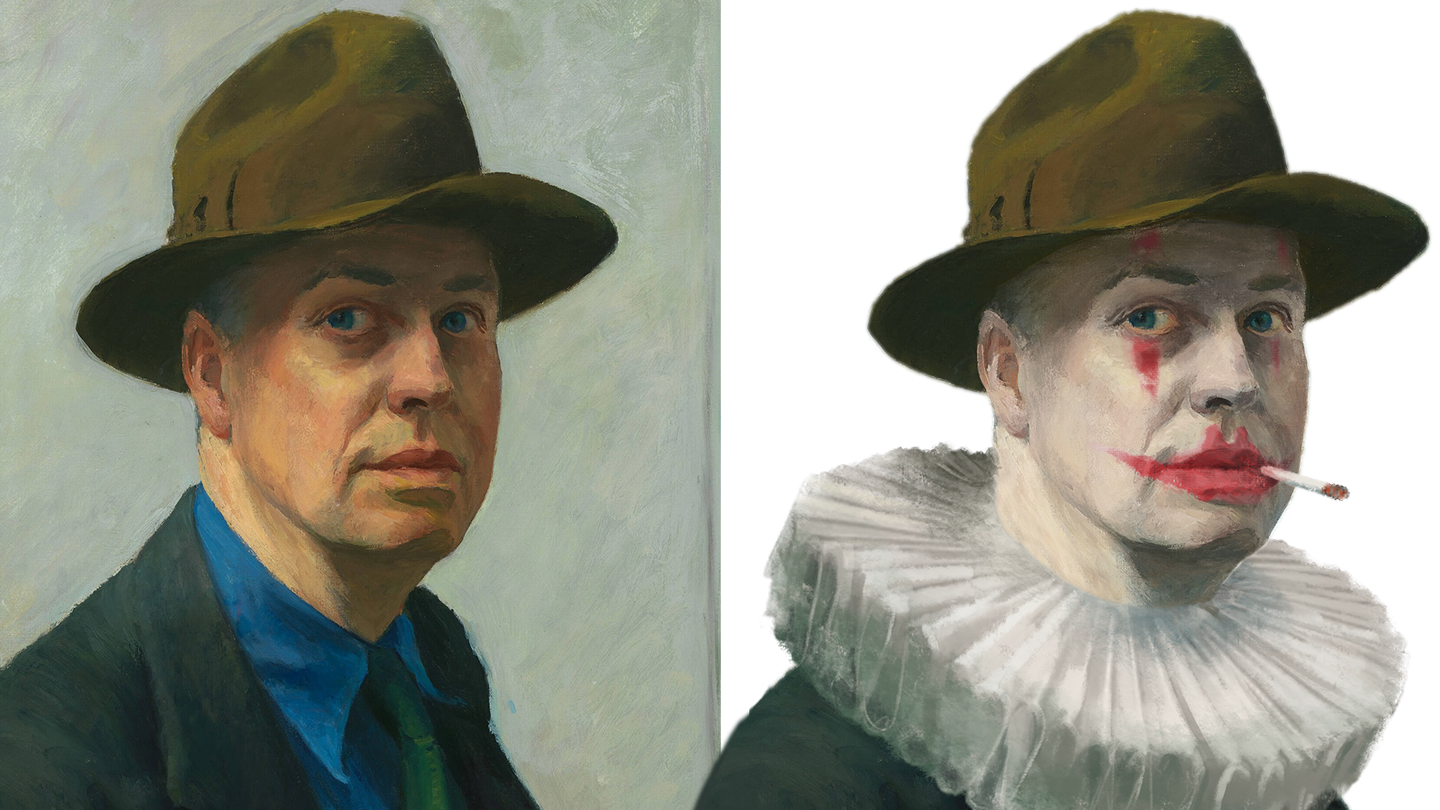
Sign up to Creative Bloq's daily newsletter, which brings you the latest news and inspiration from the worlds of art, design and technology.
You are now subscribed
Your newsletter sign-up was successful
Want to add more newsletters?

Five times a week
CreativeBloq
Sign up to Creative Bloq's daily newsletter, which brings you the latest news and inspiration from the worlds of art, design and technology.

Once a week
By Design
Sign up to Creative Bloq's daily newsletter, which brings you the latest news and inspiration from the worlds of art, design and technology.

Once a week
State of the Art
Sign up to Creative Bloq's daily newsletter, which brings you the latest news and inspiration from the worlds of art, design and technology.

Seasonal (around events)
Brand Impact Awards
Sign up to Creative Bloq's daily newsletter, which brings you the latest news and inspiration from the worlds of art, design and technology.
Despite having made a series of games based on famous paintings, Thomas Waterzooi wouldn't call himself a connoisseur of art. "I know art like the average person," he admits. "I had a mother who was really into art and took me to art galleries when I was younger, but it wasn't my passion either. Especially contemporary art I always struggled a little bit more with when it became too contextual."
Early in his career he had worked at Larian Studios, also based in his hometown of Ghent in Belgium, followed by a stint at IO Interactive during the reboot of Hitman in 2016, until he was laid off. It was after reading Will Gompertz's book What Are You Looking At?, a sort of modern art for dummies guide, that ignited the spark for going into solo game development.
"[Modern art] was the first time in history artists were actually starting to put their own visions on society in their work, because before they were mainly painting portraits or just copies of reality," Thomas explains.
"I liked that idea of putting your own vision or own ideas into your artwork and figuring out your own pot as an artist, because that's kind of what I was doing – I was figuring out who I was as a game developer." (If you want to be a game developer, see our game development tips piece).
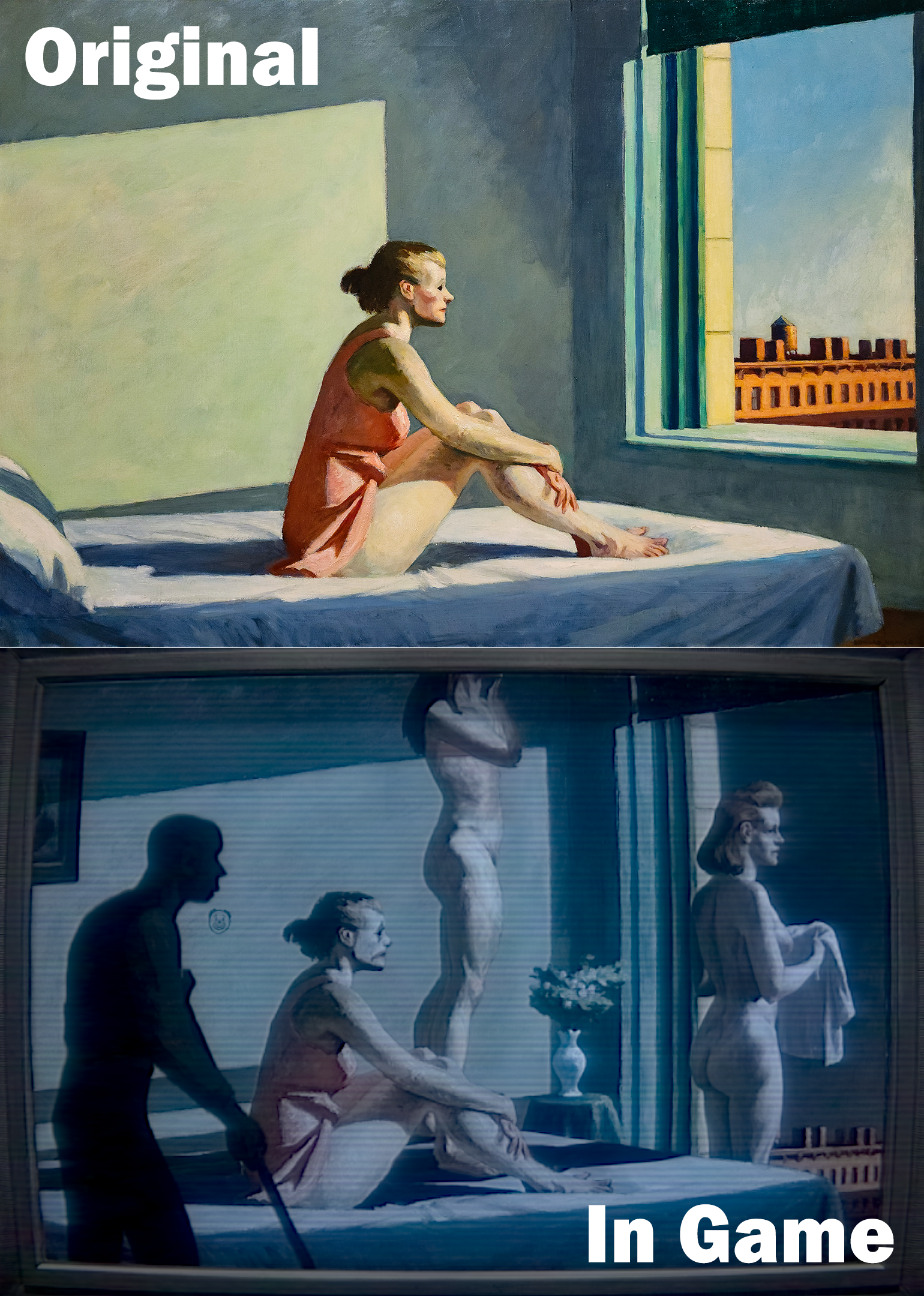
This led to his debut release, Please, Touch The Artwork, a playful narrative-based puzzler set within the paintings of Dutch art movement De Stijl, whose abstract works mostly consisting of lines and rectangles in primary colours turn into puzzles.
For Thomas, it's a way of making art for accessible to audiences, although he still starts from the art's aesthetics before considering what game mechanics can be applied.
While this has become a series, each focused on a different artist, his latest makes a change of tone and mechanics. As the title suggests, Please, Watch The Artwork is about watching rather than touching, the premise being that you're working a job of night surveillance at a museum, using surveillance cameras to watch the paintings and noting if there are any changes, in particular the comings and goings of a mysterious sad clown, whose presence is infecting the other paintings.
Sign up to Creative Bloq's daily newsletter, which brings you the latest news and inspiration from the worlds of art, design and technology.
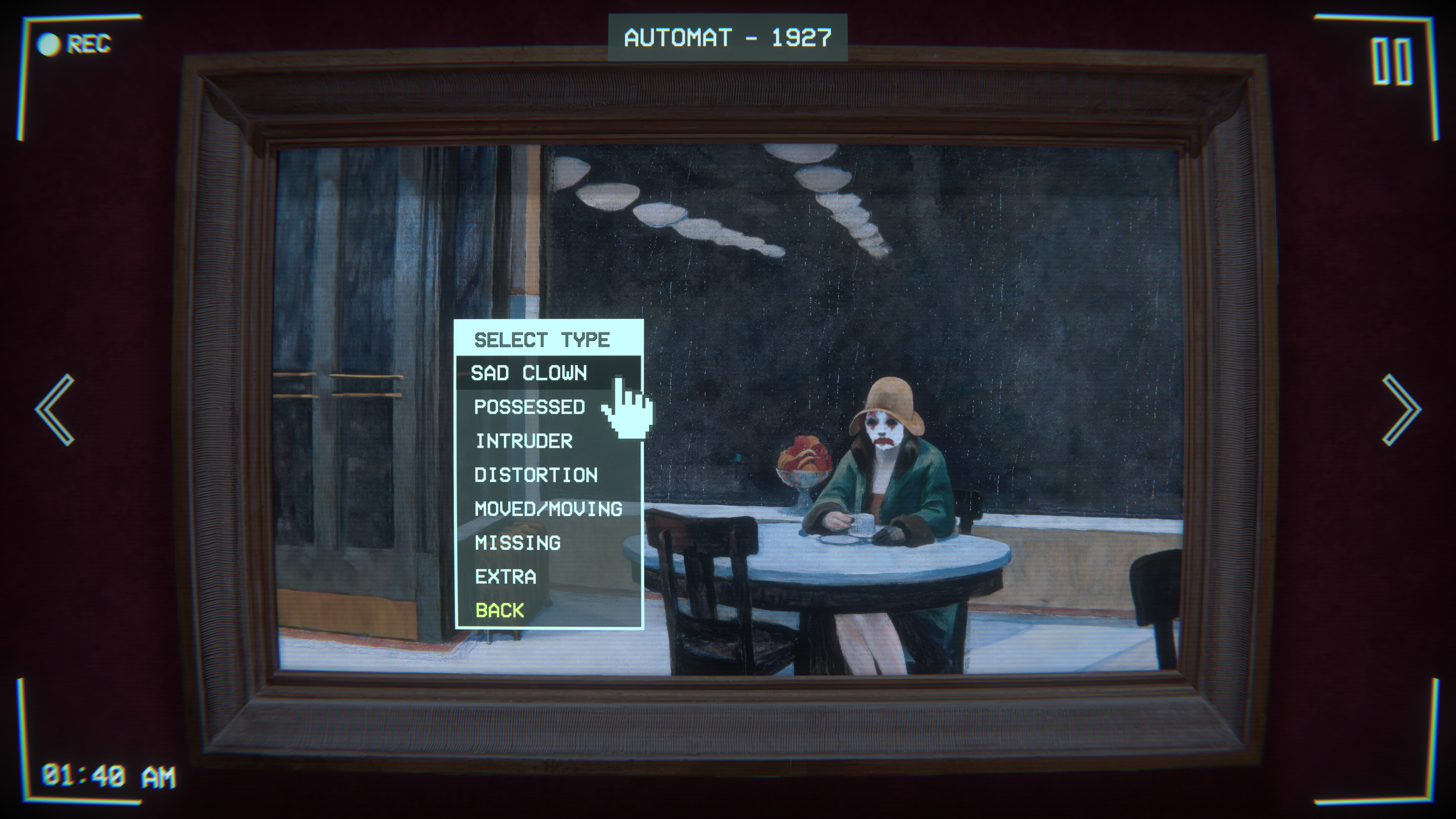
It's a premise that Thomas admits wholeheartedly to ripping off from another short indie horror game called I'm On Observation Duty, though his inspiration had also come from an article from games marketing guru Chris Zukowski. "He wrote about how every game developer should make a horror game once in their lives," he explains. "It's not really a genre, it's more a theme. You can have a puzzle horror, you can have a roguelike horror, you can go very broad. I think there's a lot of things you can do."
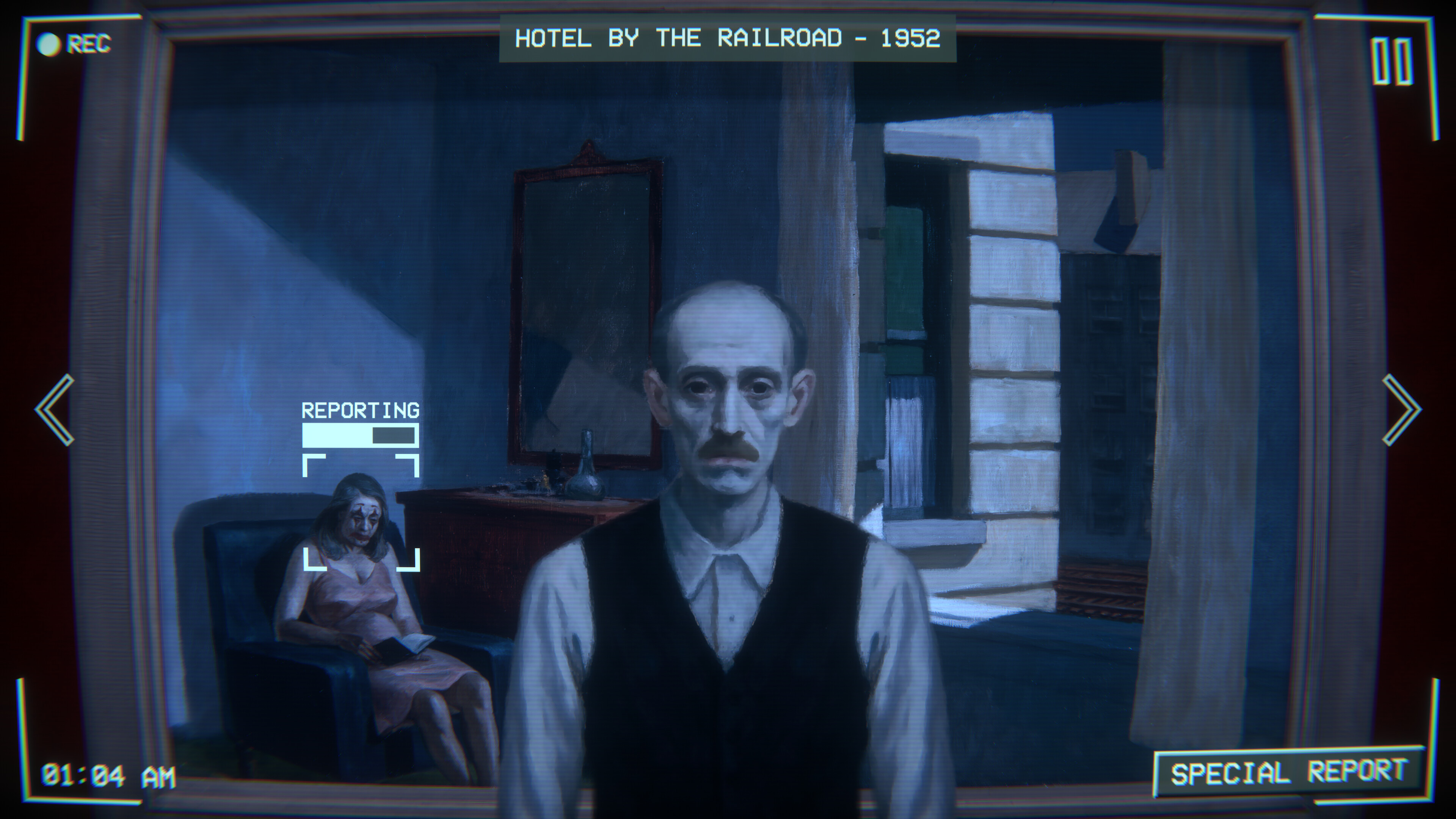
When it came to which painter whose work was in the public domain that would fit the horror aesthetic he had in mind, he landed on American realist painter Edward Hopper. "His paintings are a bit more psychological horror. He painted about loneliness in society, alienation. His works felt a bit like liminal spaces, which have also become very popular in the gaming space."
While Thomas takes a playful approach to adapting Hopper's work, in this case making them come alive with animated loops for characters within the painting or adding rain, he also opted to stay true to the painter's tone and style.
"I thought about adding monsters or dark characters from other painters like Goya, but then I thought the art styles don't mix, and I was deviating from what made Hopper so strong, which was this absence of things and just these deep emotions radiating from these characters in loneliness and isolation."
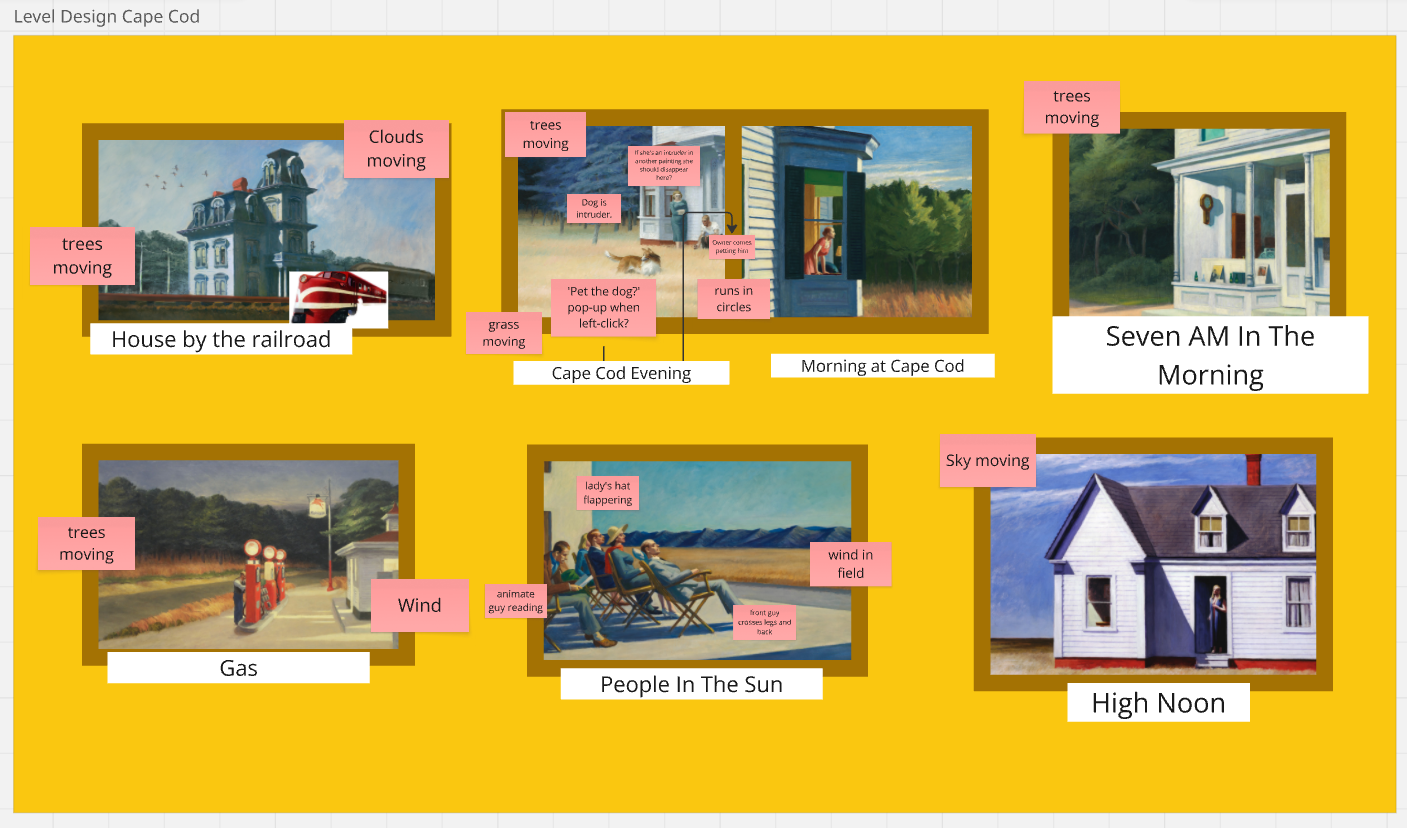
Please, Watch The Artwork had originally been a way to learn using the open-source Godot engine. Ultimately, Thomas reverted to developing the game with Unity for practical reasons.
"I do a lot of skeletal mesh-based 2D animations, but when I was testing Godot, it didn't have a tool for that back then while Unity did," he adds. "Since I know that was such a big part of my pipeline and also because I wasn't sure of platform exports, like porting to Switch, I got scared and chickened out. But I heard Godot has introduced it now so next time I'll give it another try."
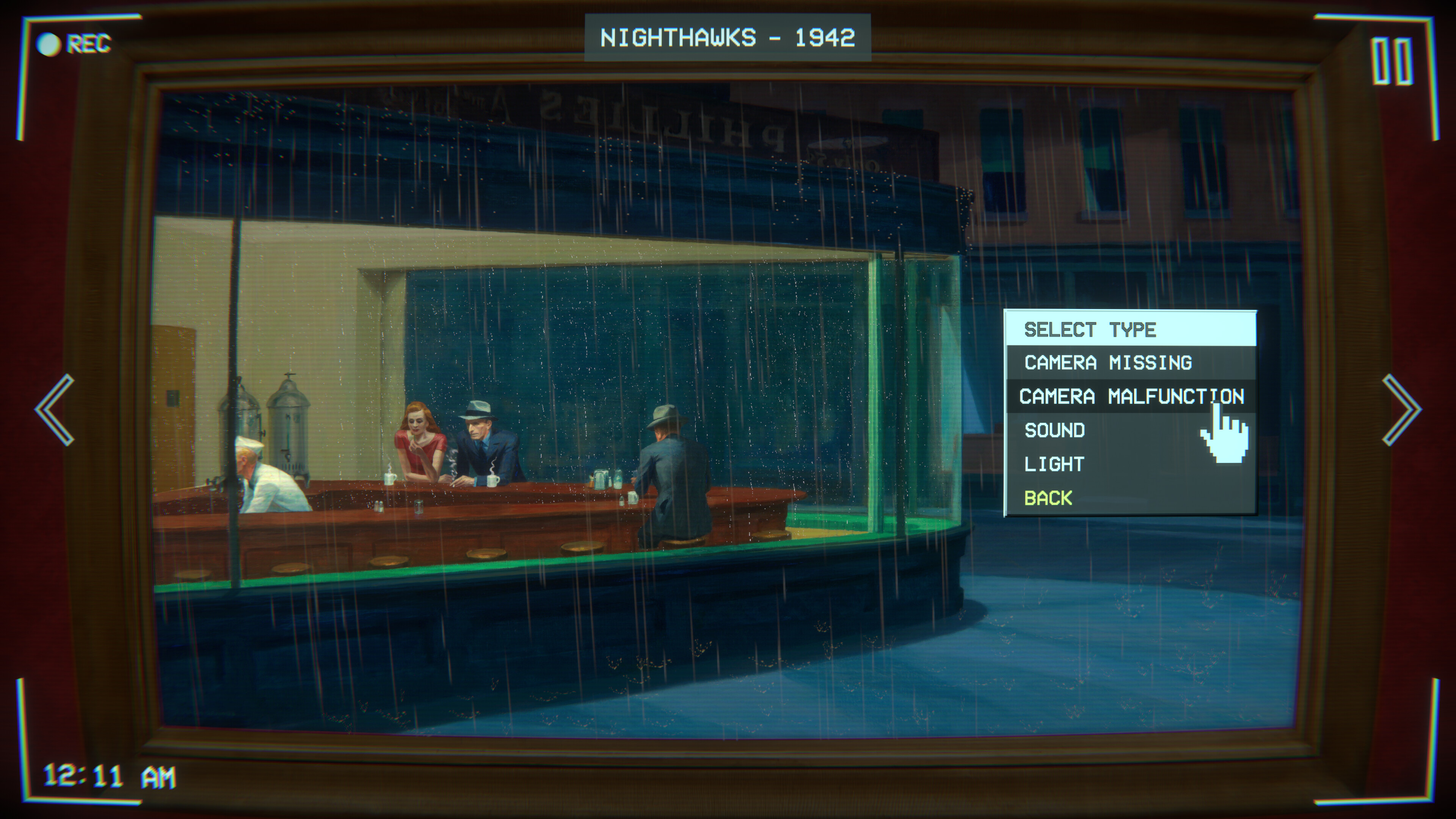
On the subject of loneliness, how does Thomas handle being a solo developer? Not actually that well, which is why instead of working from home, he's fortunate to have a co-working space he can go to called Games Brussels shared with other fellow game developers.
"We're like 20-25 people in one big space, so we can always ask each other for feedback, and we're never really alone," he concludes. "We have monthly meetups to showcase games and ask for feedback in a bar, and we have some free beers with it. We have a good community."
Please, Watch The Artwork is coming to PC soon, and you can wishlist it on Steam.

Alan Wen is a freelance journalist writing about video games in the form of features, interview, previews, reviews and op-eds. Work has appeared in print including Edge, Official Playstation Magazine, GamesMaster, Games TM, Wireframe, Stuff, and online including Kotaku UK, TechRadar, FANDOM, Rock Paper Shotgun, Digital Spy, The Guardian, and The Telegraph.
You must confirm your public display name before commenting
Please logout and then login again, you will then be prompted to enter your display name.
